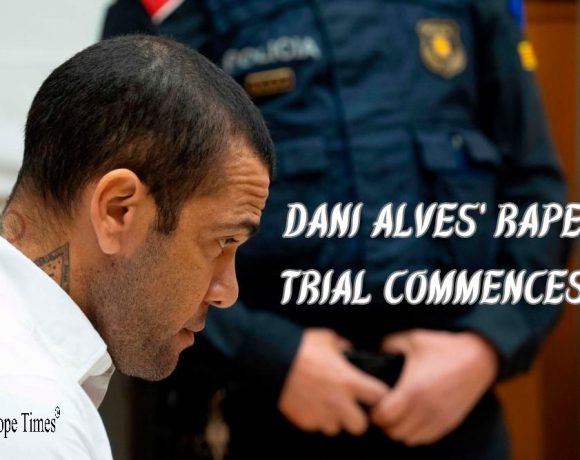
Former Barcelona and Brazil footballer Dani Alves is currently facing charges of rape in a Barcelona nightclub, accused of assaulting a 23-year-old woman. The prosecution is relying on substantial scientific evidence, video footage, and witness statements to support their case. The alleged incident took place on December 30, 2022, in the VIP area of the Sutton nightclub. According to the prosecution, Alves bought the woman and her friends drinks, invited her to a bathroom without surveillance cameras, and is accused of assaulting her when she refused his advances.
Alves, aged 40, could potentially face a 12-year prison sentence if convicted. The trial began with the victim testifying from behind a screen with her voice electronically distorted for privacy. The alleged assault came to light when the victim immediately reported the incident, leading to a medical examination and the collection of extensive evidence by the police in the nightclub’s bathroom area.
The case has garnered significant attention as it is seen as a litmus test for the judiciary’s approach to sexual assault cases, particularly after the controversial “wolf pack” case. Alves has changed his defense multiple times since first being questioned by the police in January 2023. Initially denying knowing the accuser, he later admitted to various activities, citing different defenses, including intoxication.
The trial coincides with other high-profile sexual assault cases in Spain, such as the incident involving Luis Rubiales, the president of the Spanish football federation, who faces prosecution for forcibly kissing Jenni Hermoso during the World Cup victory celebrations. The Catalan equality minister, Tània Verge, has emphasized that these cases mark the end of impunity for alleged sexual aggressors, irrespective of their fame or power.
Notably, Alves joins a list of top-flight players, including Cristiano Ronaldo, Mason Greenwood, Benjamin Mendy, and Robinho, who have faced rape accusations. In most cases, charges were dropped or settled financially, but Alves’s alleged victim has consistently refused any financial settlement. The trial is scheduled to last three days, and the outcome will be closely watched for its implications on justice for sexual assault victims.
Picture Courtesy: Google/images are subject to copyright


